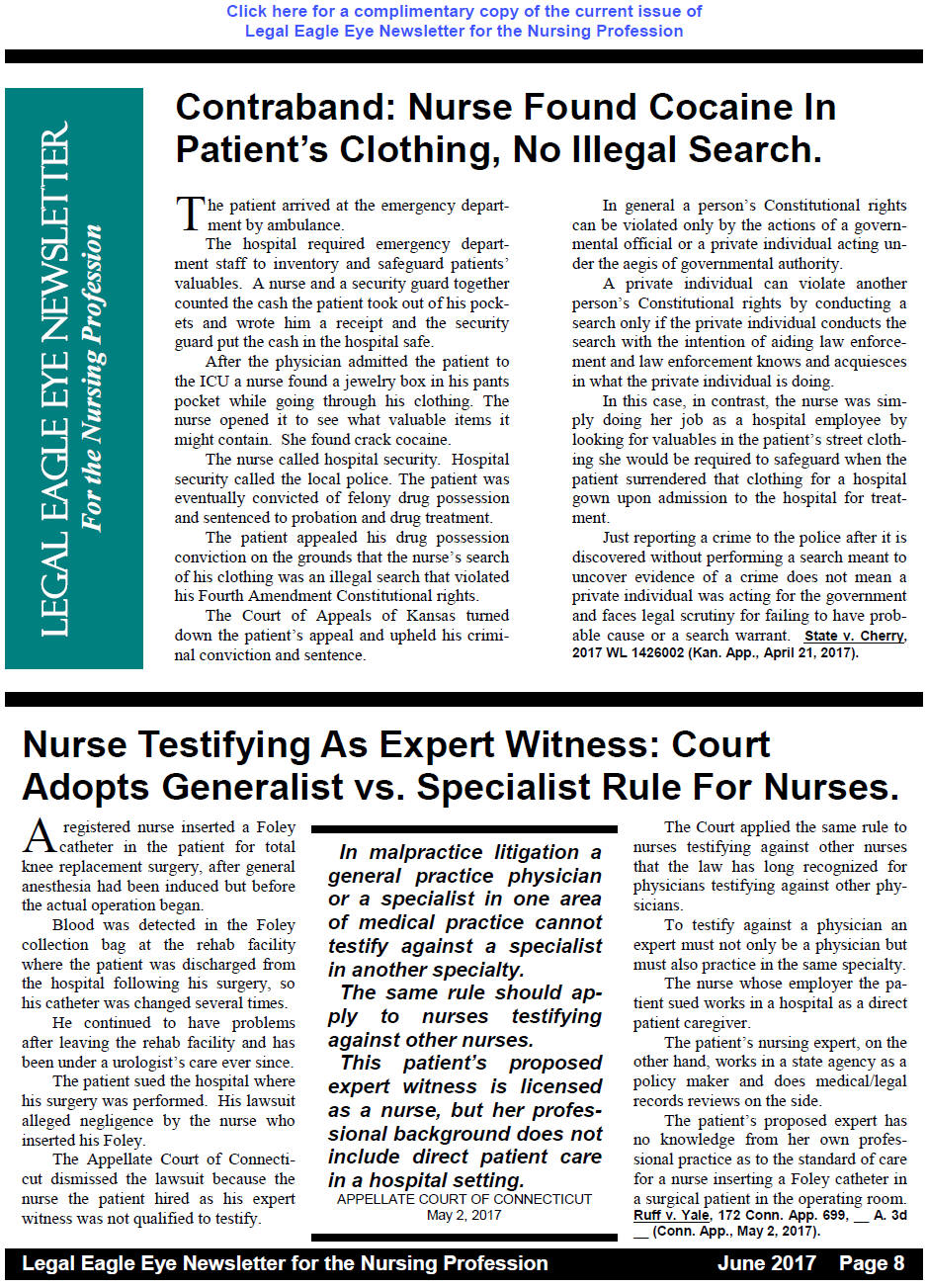
The patient arrived at the emergency department by ambulance. The hospital required emergency department staff to inventory and safeguard patients' valuables. A nurse and a security guard together counted the cash the patient took out of his pockets and wrote him a receipt and the security guard put the cash in the hospital safe. After the physician admitted the patient to the ICU a nurse found a jewelry box in his pants pocket while going through his clothing. The nurse opened it to see what valuable items it might contain. She found crack cocaine.
The nurse called hospital security. Hospital security called the local police. The patient was eventually convicted of felony drug possession and sentenced to probation and drug treatment. The patient appealed his drug possession conviction on the grounds that the nurse's search of his clothing was an illegal search that violated his Fourth Amendment Constitutional rights.
The Court of Appeals of Kansas turned down the patient's appeal and upheld his criminal conviction and sentence. In general a person's Constitutional rights can be violated only by the actions of a governmental official or a private individual acting under the aegis of governmental authority. A private individual can violate another person's Constitutional rights by conducting a search only if the private individual conducts the search with the intention of aiding law enforcement and law enforcement knows and acquiesces in what the private individual is doing.
In this case, in contrast, the nurse was simply doing her job as a hospital employee by looking for valuables in the patient's street clothing she would be required to safeguard when the patient surrendered that clothing for a hospital gown upon admission to the hospital for treatment. Just reporting a crime to the police after it is discovered without performing a search meant to uncover evidence of a crime does not mean a private individual was acting for the government and faces legal scrutiny for failing to have probable cause or a search warrant.
State v. Cherry, 2017 WL 1426002 (Kan. App., April 21, 2017).